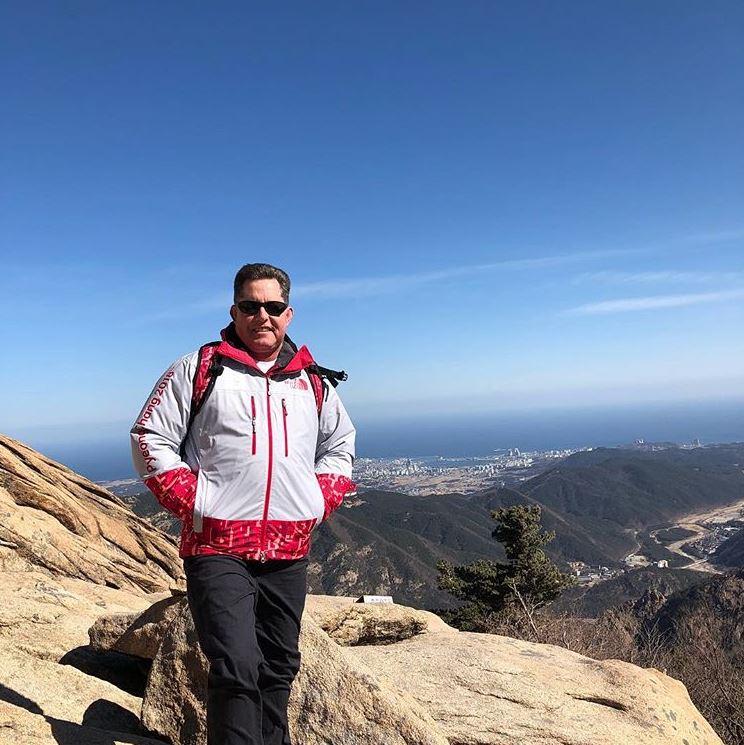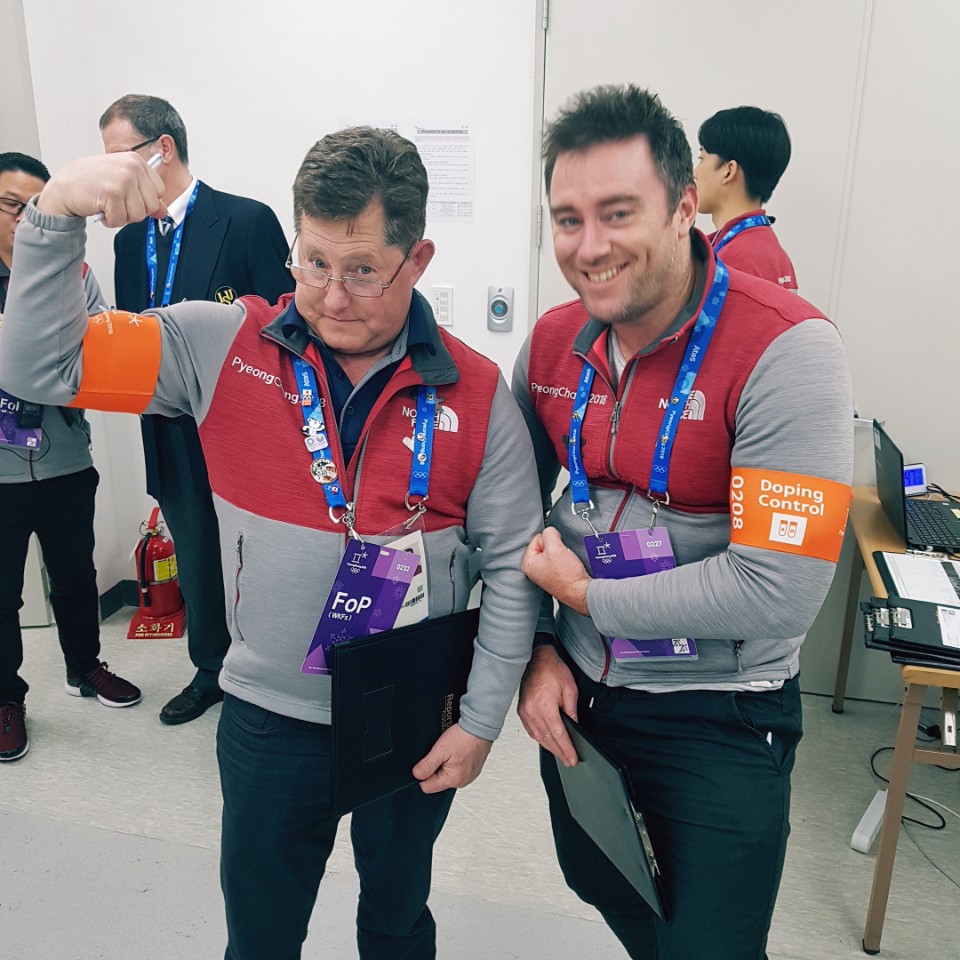 Gary Robbins started doing doping control before the U.S. Anti-Doping Agency even existed. And as a former ski team staffer and long-time resident of Salt Lake City, Utah, it’s an understatement to say that his is a familiar face to many of the Olympians who went from training venues in Salt Lake to Olympic venues at the 2018 Winter Games in PyeongChang, South Korea.
Gary Robbins started doing doping control before the U.S. Anti-Doping Agency even existed. And as a former ski team staffer and long-time resident of Salt Lake City, Utah, it’s an understatement to say that his is a familiar face to many of the Olympians who went from training venues in Salt Lake to Olympic venues at the 2018 Winter Games in PyeongChang, South Korea.
After so many years, Gary has also been witness to the struggles and sacrifices these athletes face to complete clean at the highest levels of competition, which has only increased his commitment to true sport. As a doping control officer (DCO) at the 2018 Winter Games, he had the opportunity to help protect all clean athlete’s rights during the largest sporting event in the world.
Now back in the United States, Gary shared his thoughts on the Games and his time in doping control:
What was your first thought after being invited to do doping control at the 2018 Winter Games?
My first thought was that it was the right thing to do. I see these athletes fighting for their dreams every day and doing it the right way, so I wanted to do my part to help keep that playing field level.
And it’s not often that I get offered the chance to go to South Korea. I grew up watching the Olympics and I’ve watched each one on TV, so I couldn’t pass up the opportunity to see it all in person.

What did you enjoy most about your time in PyeongChang?
I think the best part was working with all the international DCOs and meeting new people. Doping control isn’t glamorous, but getting to travel and experience new places is definitely a perk.
What was your favorite moment from the Games?
Hands down, my favorite moment was when Kikkan Randall and Jessie Diggins won Gold in the cross-country skiing team sprint. I’ve tested this team for years and I’ve seen how much work they put in and how much support they give each other. They are phenomenal ambassadors for clean sport. Knowing that their hard work finally paid off – with the first women’s cross-country skiing medal ever won by the United States – was a tear jerker.
How did you first get involved in anti-doping?
My wife actually became a DCO for the USOC in the late 90’s before USADA was founded, and I started out by helping her as a male chaperone and station marshal. She had a background in nursing and I still own my own upholstery business, but we loved the fact that we could do doping control together. We would work events and it would be our time to decompress, which was much needed since we had four boys at home.
When my wife decided she didn’t want to do all the travel anymore, I was offered a DCO position and got started as an official DCO in 2008.
Why is protecting clean athletes important to you?
Helping ensure that athletes can compete clean and win is what motivates me to do this job. I’ve always believed that shortcuts aren’t ok and that you should earn what you get. From a young age, I’ve been aware of when people are cheating, whether in sport or at work, and I’ve always known it’s wrong. The fact that clean athletes still get robbed of their moments is so frustrating to me and it’s why I keep doing this work.
How has doping control changed over the years?
Well we don’t have to fax in all our paperwork anymore, so that’s a plus.
But in all seriousness, the biggest and best change has been the increase in athletes’ support of doping control. Experienced athletes now see the value of clean sport and elite junior athletes know that doping control is an inevitable part of competitive sport. It’s so impressive to see their commitment to competing clean, despite the challenges and inconveniences.
And in the early days of USADA, DCOs weren’t very popular with the athletes, but now they couldn’t be more supportive. I’ve been welcomed into so many homes and by so many families…I’ve been invited to weddings and I’ve seen junior athletes grow up and have their own kids. Some athletes’ kids even call me Uncle Gary. At the end of the day, we all care about the same thing – winning the right



